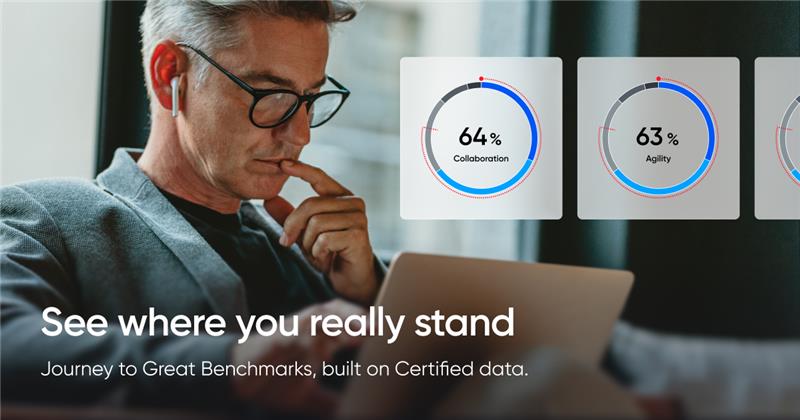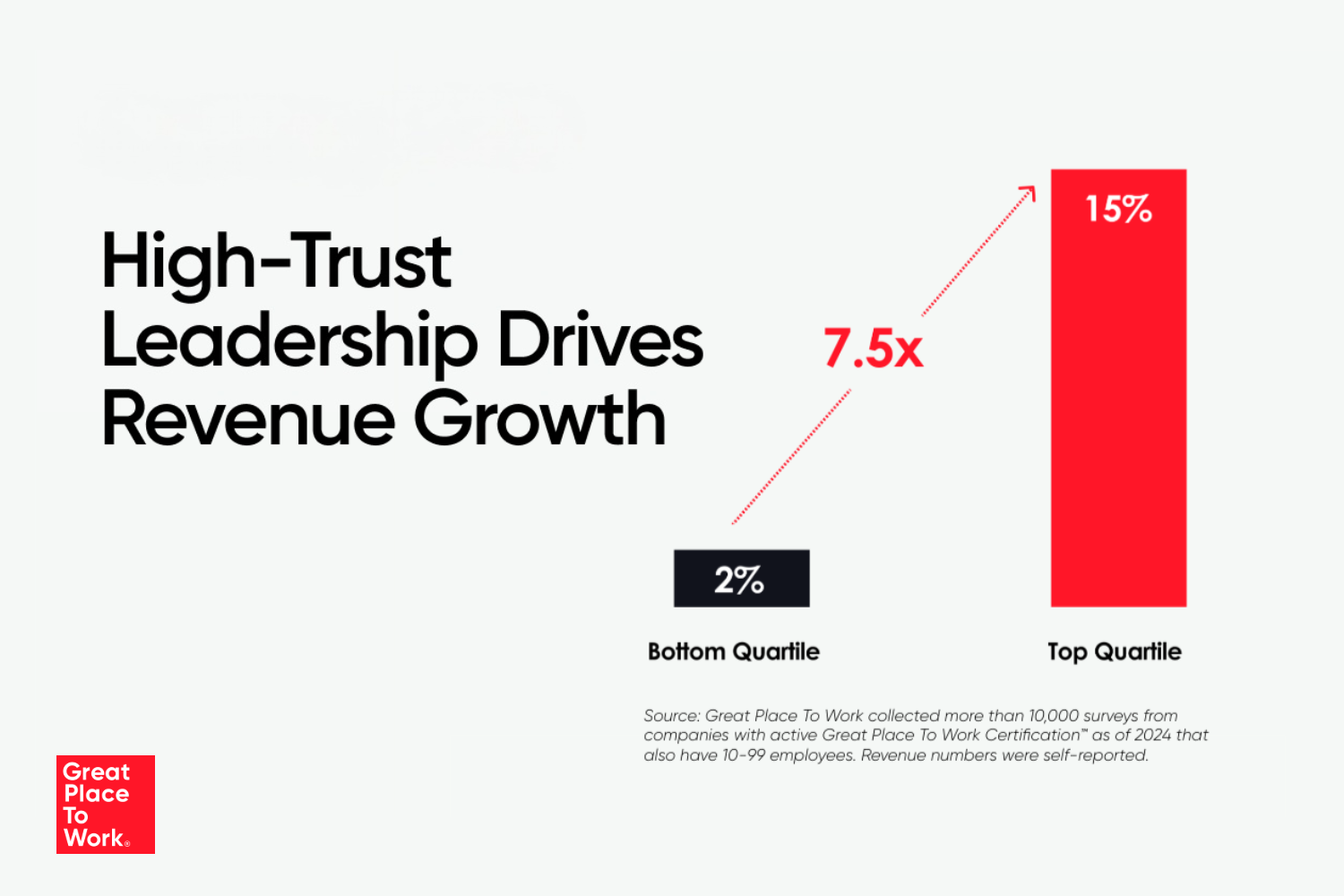Best Workplaces, Company Culture, Elements of Company Culture, Employee Experience, High-trust leadership
How top firms are shaking things up, favoring shared values over rules to boost trust and spark innovation in the workplace.
In our ongoing study of Best Workplaces, we've noticed a prevailing trend among leading companies: they're shifting from a policy-laden employee handbook to a focus on concise, shared values. This transformation signifies a move away from the waning command-and-control leadership style towards a more trust-based, value-oriented organizational approach.
One standout example comes from Nordstrom. Instead of an extensive list of regulations, they've streamlined their approach to employee behavior with a clear and effective principle: "Rule #1 is: 'Use good judgment in all situations.' Rule #2 is: 'Go back to Rule #1." Interestingly, this succinct credo appears to be all their employees require, and it works.
Fundamentally, when organizations enforce rules and policies, trust is sidelined in employee relationships, and this setup doesn't encourage a company culture conducive to innovation or empowerment.
However, the picture changes when a robust set of shared values and principles are established. They act as steady markers guiding decision-making and actions, inspiring creativity, innovation, and empowering employees. Empowered employees are a driving force – they come up with the most creative ideas, provide excellent customer service, and introduce the most revolutionary solutions.
But don't just take our word for it. Here are some perspectives from a company culture conference we held back in 2019 where we gathered perspectives from top leaders.
The advice they gave then remains as relevant and powerful today as it was when they first said it. They underlined the importance of shared values and principles and how they empower employees, inspire creativity and innovation, and guide decision-making:
Terri Kelly, former President & CEO, W.L. Gore: "At any Gore site, you will find [a poster outlining Gore's values and guiding principles] in every office and conference room. Our associates use this as their decision-making and action planning compass. This guideline serves as their touchstone for ensuring alignment with our company's cultural ethos."
The late Blake Nordstrom, then co-President, Nordstrom: "Rule #1 is 'Use good judgment in all situations.' Rule #2 is: 'Go back to Rule #1.' This is all employees need—and it works."
Victoria B. Mars, former chairwoman, MARS: "In every MARS unit around the globe, The Five Principles form the bedrock of our cultivated culture. We are unwavering in this approach. We have few rules beyond these principles. They reflect our values and define how we conduct our business."
Bill Emerson, former CEO, of Quicken Loans (now known as Rocket Companies): "As a company expands, it's unrealistic for senior leaders to be omnipresent and make every decision. It's crucial, therefore, to foster a culture and philosophy that people can understand and relate to, because we want our employees to be decision-makers."
The shift to a value-centric approach is an affirmation of the changing dynamics in modern workplaces, as the command-and-control style gives way to more trust-based, engaging, and empowering organizational cultures.
In companies like Nordstrom, W.L. Gore, MARS, and Rocket Companies, we've observed the efficacy of implementing shared values and principles that guide decisions and actions. Instead of bogging employees down with intricate policies, these organizations have chosen to empower them with a set of values that instill a sense of purpose, responsibility, and belonging.
In essence, shared values are the modern 'secret sauce' to creating a thriving, innovative, and trust-based work environment
Actively evaluate and reinforce shared values in your organization
The Great Place To Work® Trust Index Survey™ helps gauge and scrutinize the extent of employees' connection to company values, amongst other facets of workplace culture. Discover more about our Certification and survey today.











